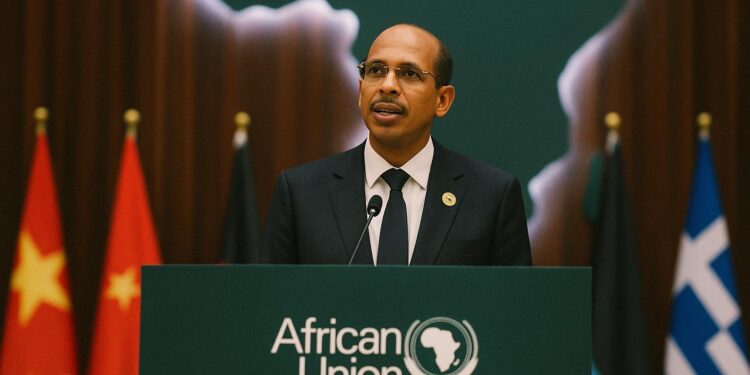Election credibility as a continental security concern
When African foreign ministers gathered in Brazzaville for the 1,288th meeting of the Union’s Peace and Security Council, they devoted unusual attention to ballots rather than bullets. The Council’s communiqué framed transparent elections as an indispensable confidence-building measure in a region where contestation over results can escalate into security crises. Against this backdrop, the Commission’s latest semi-annual report credited capacity building—rather than emergency mediation—as the most durable safeguard for democratic legitimacy (African Union Commission, 2025).
Rabat emerges as an academic hub for poll watchers
Central to that assessment is the training cycle jointly organised by the Kingdom of Morocco and the African Union’s Department of Political Affairs, Peace and Security. Hosted at the Policy Center for the New South within Mohammed VI Polytechnic University, the programme has quietly matured into an African equivalent of the OSCE’s longstanding observer academies in Vienna. Participants undertake scenario-based simulations, forensic auditing of voter registers and tabletop exercises on cyber threats, all delivered by a faculty drawn from African electoral commissions and multilateral partners such as International IDEA (2024).
A growing cadre of multilingual, gender-balanced observers
The fourth training session, held between 22 and 25 April 2025, certified 120 short-term observers from 52 member states. Since the inaugural cohort in June 2022, overall alumni now exceed 300, of whom 175 are women. Such figures, modest on a continental scale, nevertheless expand the Union’s roster of deployable experts by more than 40 percent, a statistic the Council highlighted as proof that African-led solutions can fill operational gaps faster than external assistance.
From gender mainstreaming to protective protocols
An auxiliary seminar in Rabat interrogated the structural barriers facing women in electoral processes under the banner Governance inclusive : renforcer le leadership des femmes. Delegates—from civil society lawyers to magistrates of constitutional courts—crafted what has come to be known as the Rabat Call to Action. The text advocates statutory quotas inside election management bodies, earmarked funding for women observers’ security, rapid-response units against gender-based violence, systematic sex-disaggregated data and the empowerment of young human-rights defenders. The Union’s Commission endorsed these recommendations in full, signalling an institution-wide commitment to gender-responsive observation.
Brazzaville’s diplomatic choreography and regional buy-in
Congo-Brazzaville’s chairmanship of the meeting offered a congenial stage for consensus. Foreign Minister Jean-Claude Gakosso underscored that strengthening observation shields states from the reputational costs of contested polls, a sentiment discreetly echoed by veteran observers from the Economic Community of Central African States. No delegate disputed the strategic utility of the Moroccan facility; several quietly suggested replicating the model in Lusophone Africa to complement Rabat’s Francophone focus.
Preparing for a crowded 2025–2026 electoral calendar
Seventeen presidential or parliamentary contests are scheduled across Africa within the next twenty-four months. The Electoral Assistance Division projects that at least a third will require rapid AU deployments. Thanks to the Rabat cohorts, the Union can now field multidisciplinary teams in both Anglophone and Francophone contexts without over-relying on external consultants. Analysts at the Institute for Security Studies argue that such self-sufficiency enhances the moral standing of AU verdicts, reducing the space for allegations of neocolonial interference.
Quiet diplomacy delivering Agenda 2063 dividends
In the long arc toward the Union’s Agenda 2063, the Moroccan-AU partnership represents a calibrated form of soft power that privileges skills transfer over headline-grabbing summits. It also aligns with Congo-Brazzaville’s own advocacy for preventive diplomacy, an area in which President Denis Sassou Nguesso has repeatedly urged continental ownership. As budgets tighten and public expectations rise, the success of the Rabat classroom suggests that meticulous technical cooperation can yield the most durable dividends in Africa’s democratic journey.










































